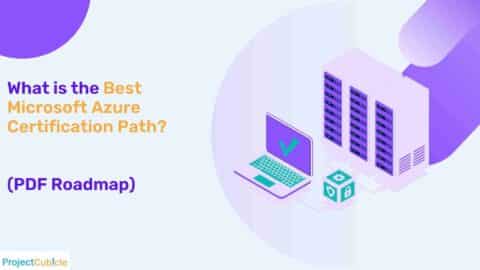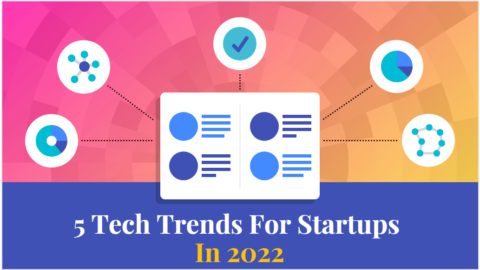Cloud Computing Skills to Master: Boost Your IT Career
The cloud technology market is constantly evolving and opening up new business opportunities. The business owner can save money on unnecessary and inefficient solutions such as separate databases, software and hardware, computing and accounting programs, and specialists who service all these.
Table of Contents
Using the Internet, especially the most popular Google Cloud Platform, you can connect a range of services and pay only for those you use. One good specialist is enough to maintain cloud programs. Who are these specialists, and what skills to enchant to become one of the most sought-after virtual infrastructure maintenance masters?
Let’s Recall What Cloud Computing Is
With the help of cloud computing and all related services, your company has a unique opportunity to be aware of events and manage the company’s online processes. Everything, including business applications, information storage, computing programs, and network capabilities, is available to any company employee.
All data is stored in the software provider’s data center, controlled by an experienced IT specialist.
How Do Things Work for Cloud Technologies?
Many stereotypes surround clouds and everything connected with them. They are believed to be easy to work with, cheap, and everything magically scales by itself after deployment.
The world of clouds is extremely rich in various technological tools: containers, infrastructure automation tools, distributed storage and databases, virtual networks and firewalls, and much more. It is not enough for a participant in a cloud project to know only one or two programming languages or one testing tool.
All modern products are updated very quickly, new features appear every month, and big releases appear every six months. Therefore, engineers are expected to have a broader outlook.
Cloud Engineers: Who Are They?
In many companies, programmers are often referred to as cloud service developers. Such a specialist designs individual modules of the cloud platform, writes code for these modules, promptly responds to problems with the service, and fixes them. An essential part of the work of such a specialist is debugging the code, that is, checking the already written program components for proper functioning, debugging when errors occur, and correcting how the program works.
This specialist must know several programming languages and work in a team, as the development of a software product, as a rule, is teamwork.
Benefits of Working as a Cloud Master
You have already discovered that cloud engineers solve a company’s or its customers’ computing problems. Each profession has its advantages and disadvantages. Here is a list of benefits for which many IT people go through training to become an absolute cloud master:
- A stable career — Cloud computing takes off to new heights daily. Everyone who tries to get a foothold in the cloud sphere can build a successful career without any problems.
- Demanded profession — Cloud architect is the most required profession and one of the most respected ones. You will be the one to guide a generation to the new light as it changes the perception of IT.
- Self-development — Cloud technologies constantly evolve, requiring specialists to master new techniques and programs continually, and you will not stand still but progress.
- High wages — IT firms are investing incredible amounts in cloud computing. Whatever your career in the cloud, data engineer, or cloud architect, you will have an attractive salary.
How to Become Skilled in Cloud Counting?
You can become competitive in cloud engineering positions by acquiring the necessary knowledge, experience, and even certification. Here is a list of everything to do:
1. Study Hard and Acquire the Necessary Knowledge.
DBA, Systems Engineer, and Network Engineer are among the IT positions that may include cloud computing-related responsibilities. If you are already working in IT, study in the area you are interested in to become a great specialist.
2. Get Hands-On Experience.
You can work with the cloud in practice in several ways. You can watch how cloud projects are developed or take on tasks yourself that will help you learn more about the principles of cloud computing if you work in IT.
3. Get Credentials.
Certification can help develop technical abilities and demonstrate your basic understanding of cloud computing to potential employers. Try a basic certificate like Google Cloud Platforms if you’re new to the cloud.
4. Get Ready for the Interview.
Practice answering typical technical questions that might come up in a job interview. You can think about the answers and practice casual conversation with friends.
What Should a Cloud Engineer Know?
Study this short list to understand what you already know and what skills you still need to improve as a loud master:
- You must understand how the network, storage, fault tolerance mechanisms, and single sign-on technology work, at least at a basic level.
- Programming languages. At least three main ones: C ++, Java, and Python.
- To understand how processes work and run the codes faster, you must realize Linux distributions, such as RHEL, Centos, and Ubuntu.
- Database skills are a must-have.
- Configuration management systems. It is necessary to understand, at least in general terms, how configuration management systems work.
- Containers and orchestration. Cloud computing is indispensable. Kubernetes and Docker are the most popular.
- Load balancers and reverse proxies. They are used in almost every web service, so you need to learn how to configure, for example, Nginx and HAproxy.
- The cloud engineer is responsible for the security of the service, so he must be well-versed in all the nuances of PKI and SSL certificates.
But you also need the so-called soft skills — organization, management, and communication skills because a cloud engineer must be able to write code and manage the service and quickly resolve issues and convince in the chosen strategy.
Cloud engineering is a great area to start an IT career. The growing global transition to cloud computing means job security and opportunities are plentiful and expanding, in addition to high median earnings.
Hello, I’m Cansu, a professional dedicated to creating Excel tutorials, specifically catering to the needs of B2B professionals. With a passion for data analysis and a deep understanding of Microsoft Excel, I have built a reputation for providing comprehensive and user-friendly tutorials that empower businesses to harness the full potential of this powerful software.
I have always been fascinated by the intricate world of numbers and the ability of Excel to transform raw data into meaningful insights. Throughout my career, I have honed my data manipulation, visualization, and automation skills, enabling me to streamline complex processes and drive efficiency in various industries.
As a B2B specialist, I recognize the unique challenges that professionals face when managing and analyzing large volumes of data. With this understanding, I create tutorials tailored to businesses’ specific needs, offering practical solutions to enhance productivity, improve decision-making, and optimize workflows.
My tutorials cover various topics, including advanced formulas and functions, data modeling, pivot tables, macros, and data visualization techniques. I strive to explain complex concepts in a clear and accessible manner, ensuring that even those with limited Excel experience can grasp the concepts and apply them effectively in their work.
In addition to my tutorial work, I actively engage with the Excel community through workshops, webinars, and online forums. I believe in the power of knowledge sharing and collaborative learning, and I am committed to helping professionals unlock their full potential by mastering Excel.
With a strong track record of success and a growing community of satisfied learners, I continue to expand my repertoire of Excel tutorials, keeping up with the latest advancements and features in the software. I aim to empower businesses with the skills and tools they need to thrive in today’s data-driven world.
Suppose you are a B2B professional looking to enhance your Excel skills or a business seeking to improve data management practices. In that case, I invite you to join me on this journey of exploration and mastery. Let’s unlock the true potential of Excel together!
https://www.linkedin.com/in/cansuaydinim/










